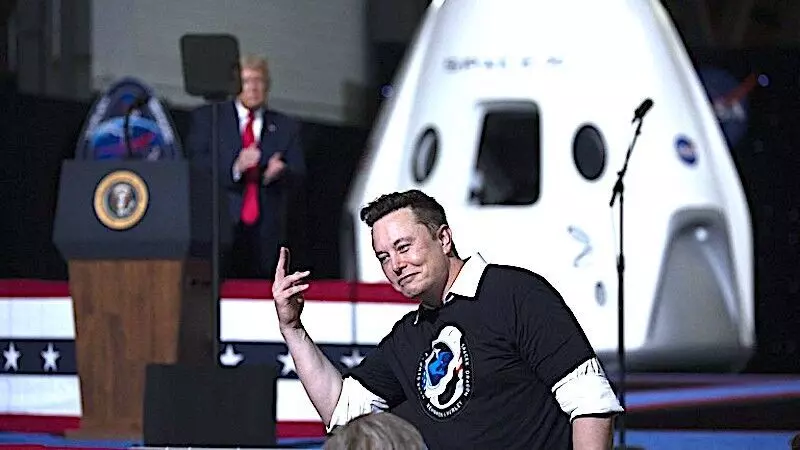is just so dangerous for all of us innocent European souls. But let’s take a closer look at this situation.
The news of Elon Musk hosting a digital fireside chat with former US President Donald Trump has certainly sparked some controversy in Europe, particularly among EU officials. This event is set to take place on the popular social media platform, X, which is owned by Musk. The chat is expected to be viewed by millions of people around the world, including those within the European Union.
EU Internal Markets Commissioner Thierry Breton has expressed his concerns about this upcoming event and has even gone as far as sending a warning letter to Elon Musk. In this letter, Breton highlights ongoing compliance investigations involving the X platform and emphasizes the importance of mitigating any “amplification of harmful content” that could potentially have detrimental effects on civic discourse and public security.
But is it really so dangerous for Europeans to hear what Donald Trump has to say? Is listening to his opinions, ideas, and perspectives on various issues truly a threat to the stability of European society? Or is this just another attempt by EU officials to control the narrative and limit free speech.
It’s no secret that the European Union has a history of censoring content and suppressing dissenting opinions. In recent years, we have seen numerous examples of the EU cracking down on internet platforms and social media companies in an effort to prevent so-called “disinformation” from spreading throughout the continent. While it’s important to protect society from harmful misinformation, there is a fine line between censorship and protecting public interests.
By threatening Elon Musk with legal action if he proceeds with the chat, Breton is essentially trying to censor Trump’s voice in Europe. This raises several questions about the true motives of EU officials when it comes to controlling the flow of information within its borders.
First and foremost, is it really up to the European Union to decide which political figures can and cannot be heard by its citizens? Shouldn’t individuals have the right to make up their own minds about what they choose to believe or support? By attempting to silence Trump, Breton is essentially denying Europeans the opportunity to form their own opinions about a major political figure in another part of the world.
Furthermore, by suppressing diverse viewpoints and perspectives, the European Union is fostering an environment where only one side of the story is ever told. This not only limits the ability of its citizens to make informed decisions but also creates an echo chamber that prevents any kind of meaningful dialogue or debate from occurring.
In conclusion, while it’s understandable that EU officials may be concerned about the potential ramifications of allowing a digital fireside chat between Elon Musk and Donald Trump to take place on X, their attempts to censor this event are ultimately counterproductive and damaging to the democratic principles upon which European society is built.
Instead of trying to control the narrative and limit free speech, perhaps it would be more beneficial for EU officials to encourage open-mindedness and critical thinking among its citizens. By allowing a diverse range of perspectives and ideas to be shared and debated, Europeans may just start learning some inconvenient truths from each other – which could ultimately lead to a stronger, more resilient society in the long run.

